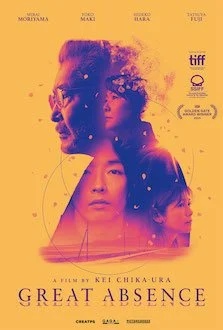Direction: Kei Chikaura
Country: Japan
Inspired by Japanese director Kai Chikaura’s real-life experiences, Great Absence is an affecting and thoroughly worthwhile film that tackles a deeply sensitive subject: dementia. Told through a bravely impressionistic lens, the film avoids melodrama and sentimentality, instead centering on compassion and forgiveness. The long-standing estrangement between a father and son—who haven’t seen each other in 25 years—is reframed when the father is struck by a debilitating mental illness.
Chikaura, who shot the film entirely on 35mm, invests each move with sincerity and emotional clarity, aided by riveting performances from Tatsuya Fuji (In the Realm of the Senses, 1976; Empire of Passion, 1978) and Mirai Moriyama (The Drudgery Train, 2012). Blending documentary-like realism with meticulous craftsmanship, the director occasionally leaves some narrative details ambiguous but never lapses into heavy-handed emotion.
With its sensitive and compassionate storytelling, Great Absence gradually breaks your heart. Methodically paced and quietly powerful, it offers a moving, understated experience for viewers open to subtlety. There’s a warmth to this film—a rhythm all its own—that lingers long after the credits roll.


